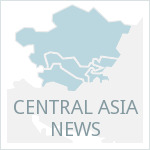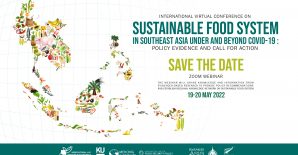News
Unemployment rate in Uzbekistan reaches 13.2%
As expected, COVID-19 has taken a toll on employment in Uzbekistan. The unemployment rate for the economically active population in Uzbekistan in January-July 2020 is 13.2%, a steep increase from the figures during the same period last year (9.1%). This is partially due to the decrease in the amount of citizens leaving for work abroad, which is half a million less than during the same period last year. The amount of people employed in the informal sector, excluding labor migrants working abroad, decreased by 2.1% as well. - kun.uz
Additional Social Protection Measures for Segments of the Population in Need of Assistance During the Coronavirus Pandemic
The President of Uzbekistan issued a decree allocating an additional 2.5 trillion UZS (about 250 million USD) from the state budget to support the most vulnerable groups of the population during the COVID-19 pandemic in Uzbekistan. The policy document includes set of social protection and support measures including provision of one-time material assistance to over 1.7 million people covering 400 thousand families and about 350 billion UZS as an aid to families in need in the wake of Eid holidays. Overall, the measures are expected to provide financial assistance to over 652 thousand households or about 7.7% of the population. - Ministry of Finance of the Republic of Uzbekistan
World Bank Appoints New Country Manager for the Kyrgyz Republic
Naveed Hassan Naqvi has been appointed as World Bank Country Manager for Kyrgyzstan. Most recently, Naqvi served as country manager for Azerbaijan. Before working for the World Bank since 2004 across Europe, Central Asia, and South Asia, he taught Economics at University of Durham, UK, and was a civil servant for the Government of Pakistan. In Kyrgyzstan, he will oversee 20 projects ($618 million) as Kyrgyzstan experiences increasing support from the World Bank with COVID-19 continuing to challenge the country. - The World Bank
The Kyrgyz Republic to Mitigate Pandemic-Caused Economic Shocks for Businesses, Vulnerable People and Communities with World Bank Support
This week, the World Bank approved financing for three projects to help mitigate the various challenges posed by COVID-19 in Kyrgyzstan. Funding breakdown: $50 million to Emergency Support for Micro, Small and Medium Enterprises; $50 million for Social Protection Emergency Response and Delivery Systems; and $21 million for CASA-1000 Community Support Project. Respectively, these projects will provide financial assistance to 65,000 MSMEs, financial assistance to poor and vulnerable sections of the population, and flexible grants for economy-boosting activities. - The World Bank
World Bank Supports Tajikistan’s Transport Connectivity and Regional Trade
The World Bank has approved a total of $132 million in grant financing for the Fourth Phase of the Central Asia Regional Links Program (CARs-4). This phase of the program is intended to enhance Tajikistan’s regional transport connectivity and facilitate cross-border trade. Specifically, the project will finance the rehabilitation of over 50km of roads in the Sughd region. It will also support the building of bridges and tunnels in GBAO. For improving cross-border trade, the funds will allow for upgrading the customs information and communication technology platform as well as other resources in the Customs Service. Further improvements will be made to ensure long-term sustainability and climate resilience within the new infrastructure. - The World Bank
ADB Approves $100 Million Loan to Help Strengthen Uzbekistan's Resilience to Health Emergencies
The ADB has approved a $100 million loan to Uzbekistan to strengthen the country’s resilience to public health emergencies like COVID-19. The Asian Infrastructure Investment Bank is working to contribute $100 million in cofinancing and the Government of Uzbekistan will provide another $57 million. The project’s initiatives include: establishing a digital national surveillance and response system for COVID-19; developing and publishing medical protocols and training health care workers; and refurbishing 16 COVID-19 treatment centers to provide better gender-segregated services. - ADB
Lump-sum grants to be provided to some 488,000 people in Tajikistan
The Government of Tajikistan will support 480,000 vulnerable people with lump-sum grants that are intended to mitigate the negative impacts of COVID-19. Recipients will mainly include those already receiving a social pension, disabled people, orphans or children who have lost their breadwinner, poor citizens, as well as a small number of refugees, people with HIV, and children with disabilities. The payments will amount to 400 Somoni. - Asia-Plus
Analysis & Related Information
COVID-19 Analyses: IFPRI Blogs
IFPRI is facilitating an ongoing blog series to discuss COVID-19 as it relates to food security and development at the global, regional, and country levels. Though some concern specific countries, the insights are applicable to others as the world collectively experiences the impacts of the pandemic. There are no new blog posts this week, but the rest are available through the link.
IFPRI Virtual Events
IFPRI has been hosting virtual events to discuss various issues related to food and agriculture policy. Videos like this will periodically be posted publicly after being streamed live, and will include presentations from researchers, discussion between researchers, and Q&A. While there will not be a new seminar this week, please visit the link to view past seminars. This week, a virtual event on COVID-19 & Global Food Security will be hosted to mark the release of a book by the same name. The event can be viewed at this link.
Life and Death in Our Hot Future Will Be Shaped by Today’s Income Inequality
It is common to hear that climate change will effect everyone in the future. However, it is an undeniable reality that it will effect people in some places more than others. At least, that is the major conclusion of "Valuing the Global Mortality Consequences of Climate Change Accounting for Adaptation Costs and Benefits", which is linked in the publications section. This analysis and the paper which it summarizes suggest that the negative effects of climate change can be reduced by mitigating income inequality. The Bloomberg article provides many insightful maps and graphics to help visualize the problem. Parts of Central Asia are among the areas that are particularly vulnerable to climate change.
Publications & Reports
China’s Foreign Aid: A Primer for Recipient Countries, Donors, and Aid Providers
Lynch, L. et al. 2020. Center for Global Development. Washington, DC.
Continuities in Transition: Ethnicity, Language and Labour Market Inequalities in Kyrgyzstan
Agadjanian, V., Oh, Byeongdon. Development and Change. Early Online Version
Environmental Governance of China's Belt and Road Initiative
Coenen, J. et al. 2020. Environmental Policy and Governance. Early Online Version
Obesity of politicians and corruption in post‐Soviet countries
Blavatskyy, P. 2020. Economics of Transition and Institutional Change. Early Online Version.
Trade and Political Fragmentation on the Silk Roads: The Economic Effects of Historical Exchange between China and the Muslim East
Blaydes, L., Palik, C. 2020. American Journal of Political Science.
Urban and rural contribution to the GHG emissions in the MECA countries
Ghanbari, S., Daneshvar, M. 2020. Environment, Development and Sustainability.
Valuing the Global Mortality Consequences of Climate Change Accounting for Adaptation Costs and Benefits
Carleton, T.A. et al. 2020. NBER Working Paper No. 27599. Cambridge, MA.: The National Bureau of Economic Research.
Useful Links & Commentaries on Research Methods, Data & Publications
Bootstrapping our way toward improved poverty maps
Paul Corral, Isabel Molina, & Minh Cong Nguyen. 2020. World Bank Blogs, Data Blogs.
Events & Announcements
Virtual Seminars on Applied Economics and Policy Analysis in Central Asia
IFPRI, Westminster International University in Tashkent, and the Lebniz Institute of Agricultural Development in Transition Economies (IAMO) will continue to host weekly seminars on topics related to applied economics and policy analysis in Central Asia. They will take place on Wednesdays, at 7:30am EST, 2:30pm Moscow, 4:30pm Dushanbe & Tashkent, 5:30pm Bishkek & Almaty. For subscribers, registration information will be sent on the Monday before each webinar. For more information and to subscribe, visit the link. This week's webinar will be hosted by IFPRI's Dr. Hiroyuki Takeshima . He will present "Agriculture-nutrition linkages at household level: findings from two recent studies in Tajikistan". You can register directly through this link.
Virtual AFE Seminar Series
A virtual seminar series organized by John List of the University of Chicago Department of Economics and Robert Metcalfe of Boston University's School of Business is being hosted weekly on Zoom. Each seminar will include a research paper presentation and Q&A, starting at 12pm EST on Wednesdays. Follow the link to view the full schedule of presenters and to sign up for invitations to the live seminar. Presentations will also by uploaded to a YouTube playlist.
Online Agriculture and Resource Economics Seminar
Dr. Marc F. Bellemare and PhD candidate Jeff Bloem will be hosting a weekly (Wednesdays, 11am CST) online seminar to discuss various research topics related to agricultural economics, nutrition, and food security. For example, the next seminar on July 29 includes a presentation of the paper, "Property Tenure and Determinants of Sensitivity to Price and Non-Price Conservation Instruments" presented by Bryan Pratt from USDA's Economic Research Service. Follow the link for registration information and a schedule of upcoming seminars.
Development Policy and COVID-19: eSeminar Series
The World Bank's Development Research Group is hosting an online seminar series for discussions on development policy as it relates to COVID-19. The seminars are completely public, do not require an application or sign-up, and will continue for the foreseeable future.
If you would like us to add your colleagues to our mailing list, please direct them to the following link. To unsubscribe email to s.nass@cgiar.org
The articles included in this news digest have been generated from online sources. Any opinions stated herein are not representative of, or endorsed by, the International Food Policy Research Institute or its partners. If access to locked articles is needed, please email s.nass@cgiar.org for a PDF copy



